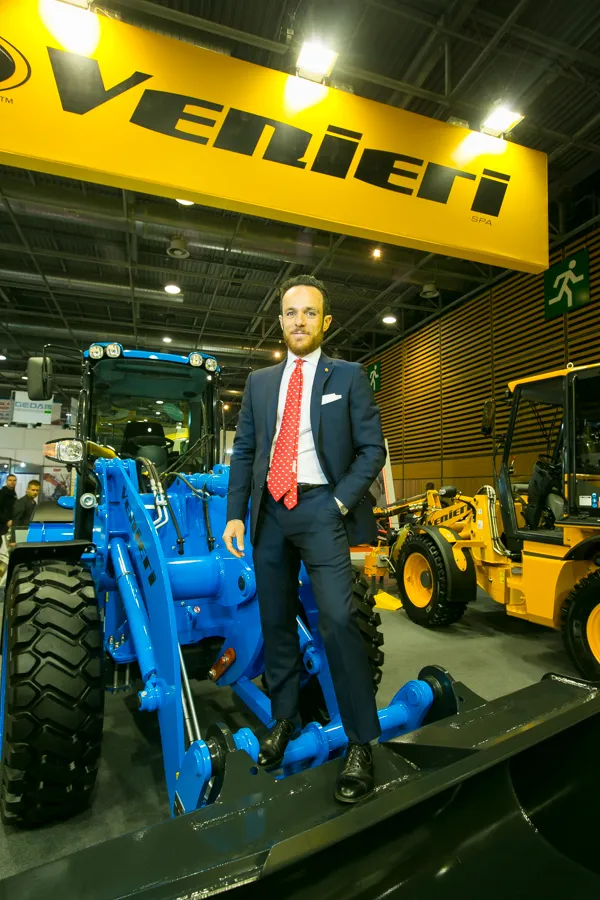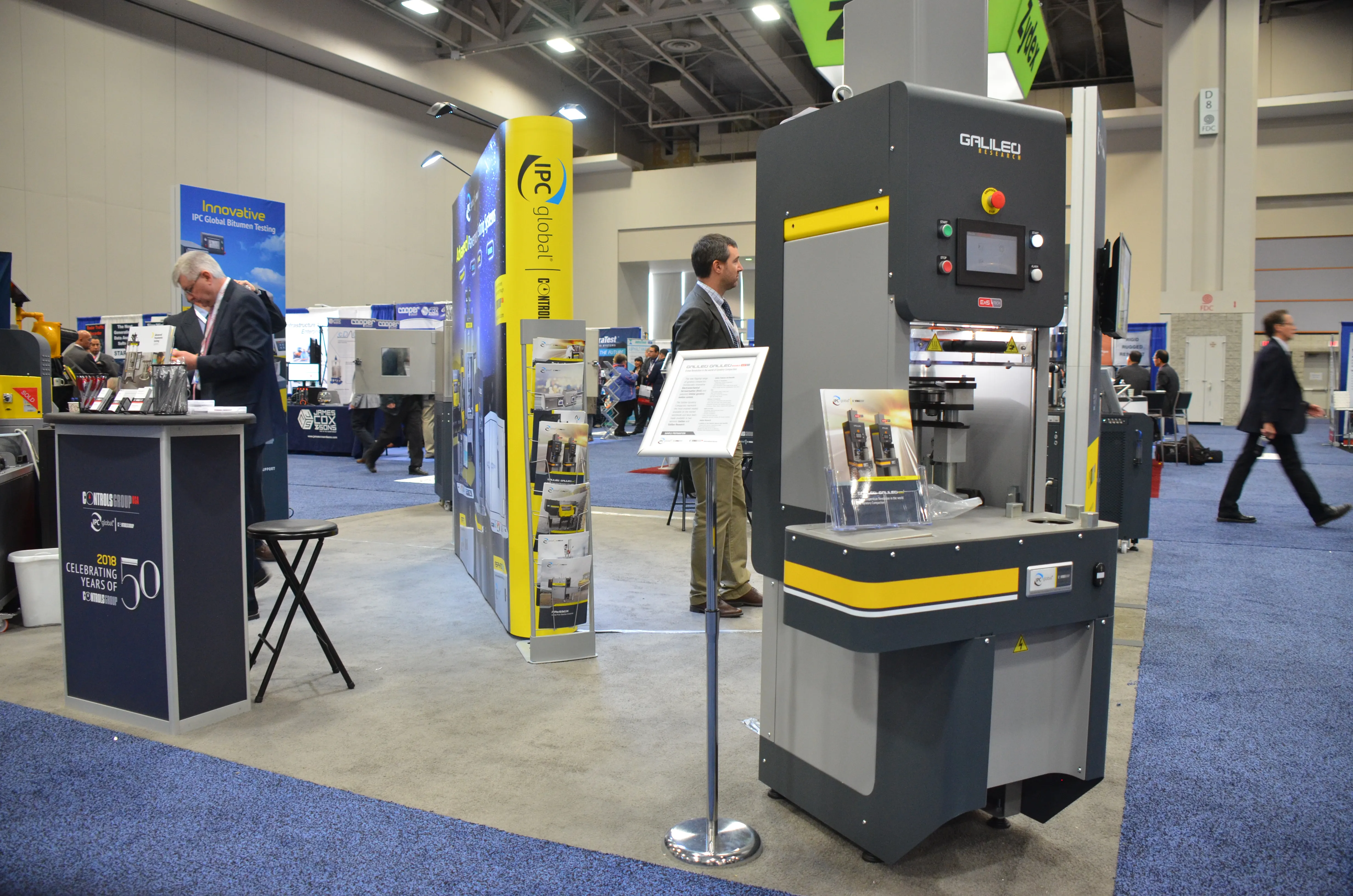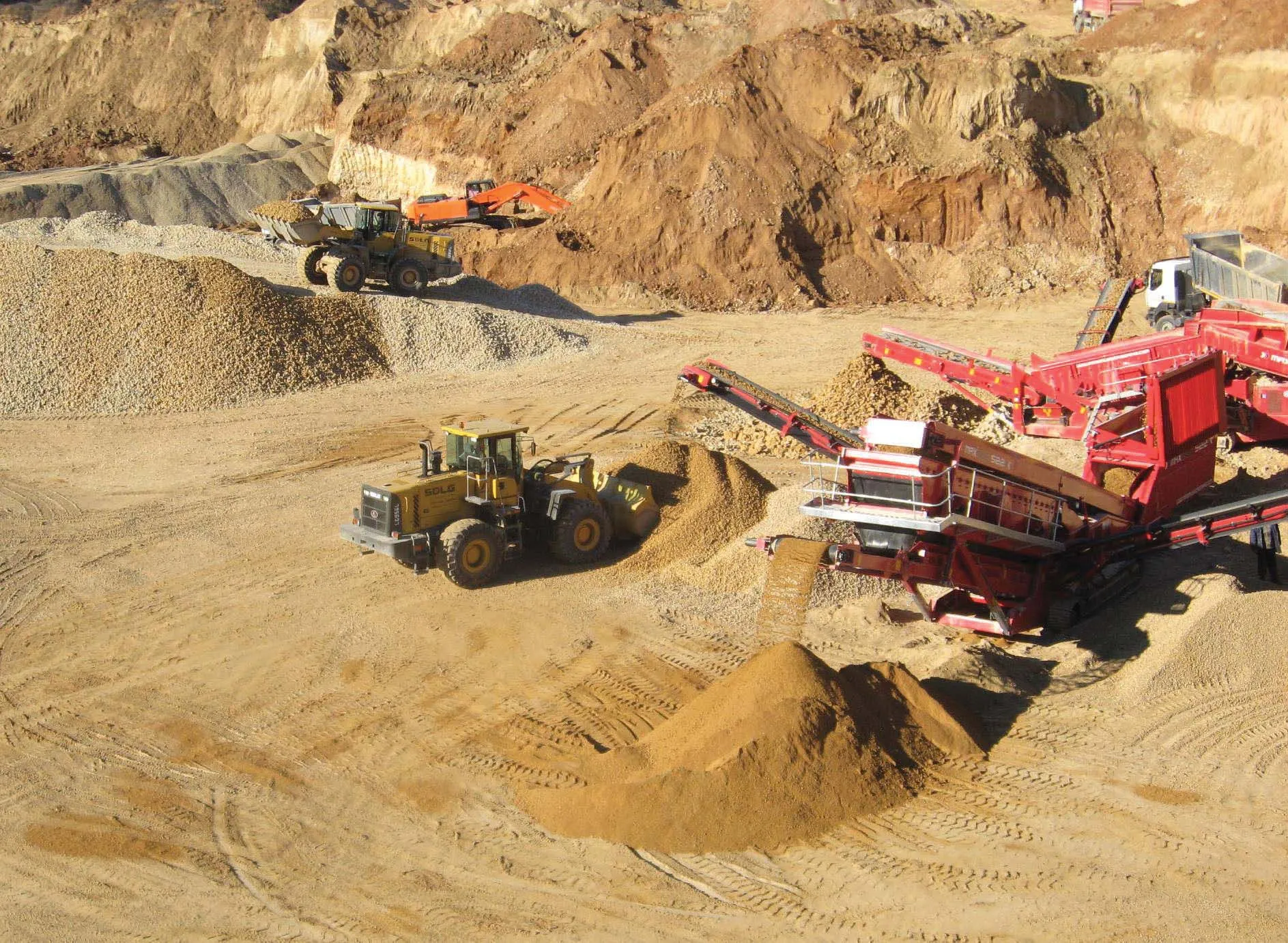
On display at VF Venieri’s Intermat 2018 stand was the Italian manufacturer’s new Electronic System for Efficiency and Safety (ESES). With a patent pending, the ESES has three components: a system that changes the response of the power steering according to the vehicle speed; electronically controlled hydrostatic transmission designed to improve efficiency and reduce fuel consumption; and a balancing system to improve the lateral stability of the vehicle.
“It’s a balancing and oscillating system that provides comfort in driving and also delivers more stability than the classic system,” says Venieri. “It improves safety because it stops the machine from tipping over on bumpy ground. If the machine tips by more than 12 to 14 degrees, then an alarm sounds to alert the driver.”
Venieri has also patented a new app which is currently under development, the Venieri Drive Connect (VDC). This will allow a fleet manager or machine owner to monitor a machine’s performance remotely, through an Apple or Android app. “We wanted to give something new to our customer, which doesn’t require them to buy anything,” says Venieri. “As well as getting information about the machine, the app will allow people to send maintenance requests to a service centre, ask for support or see where the machine was last parked.”
Venieri hopes that the app will be ready to use later this year. The long-term goal is that the flow of information out in the field will help the company to improve its machines, says Venieri.









